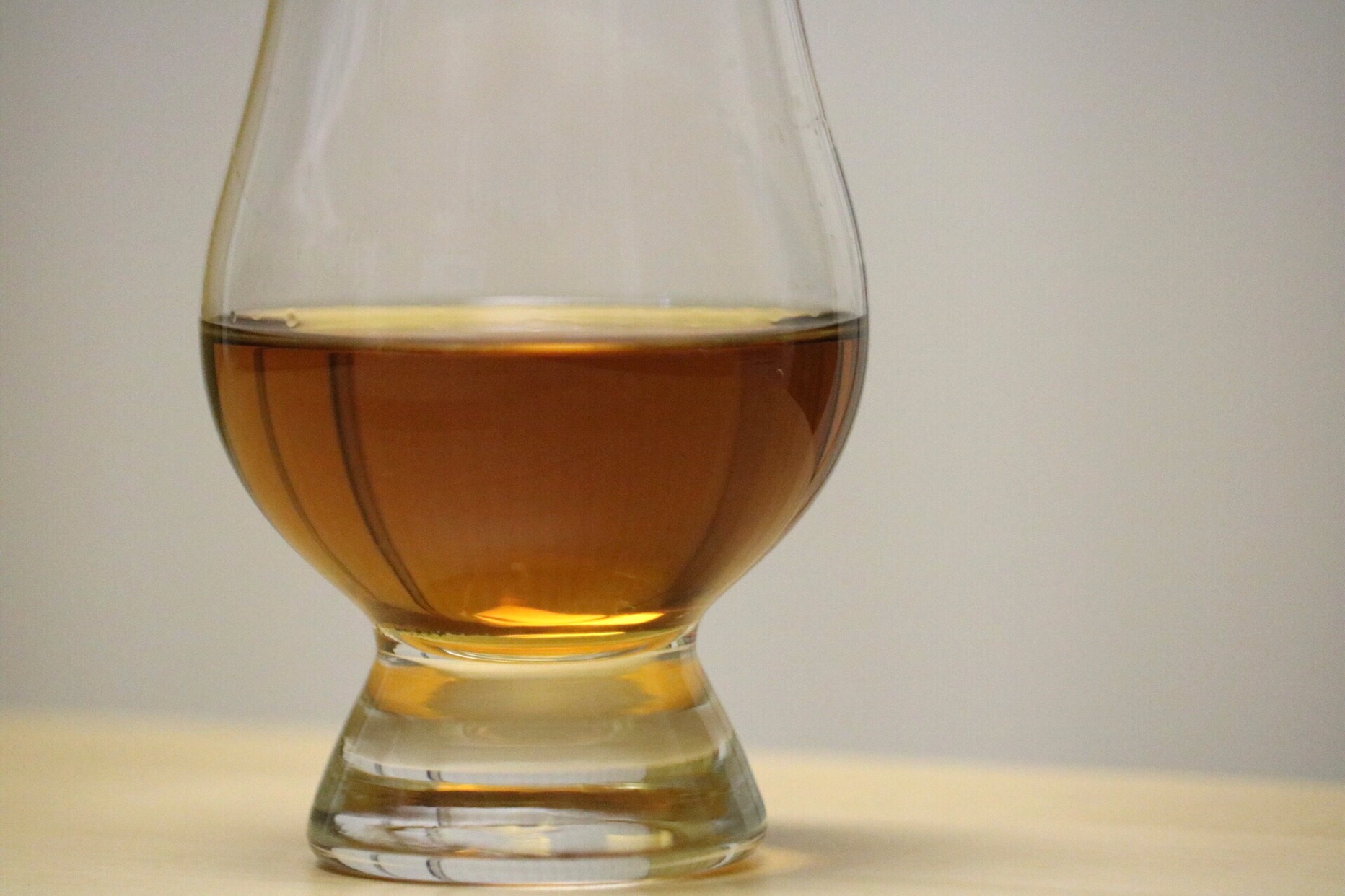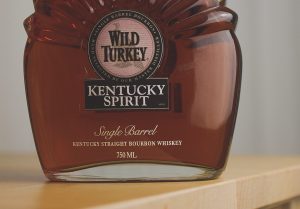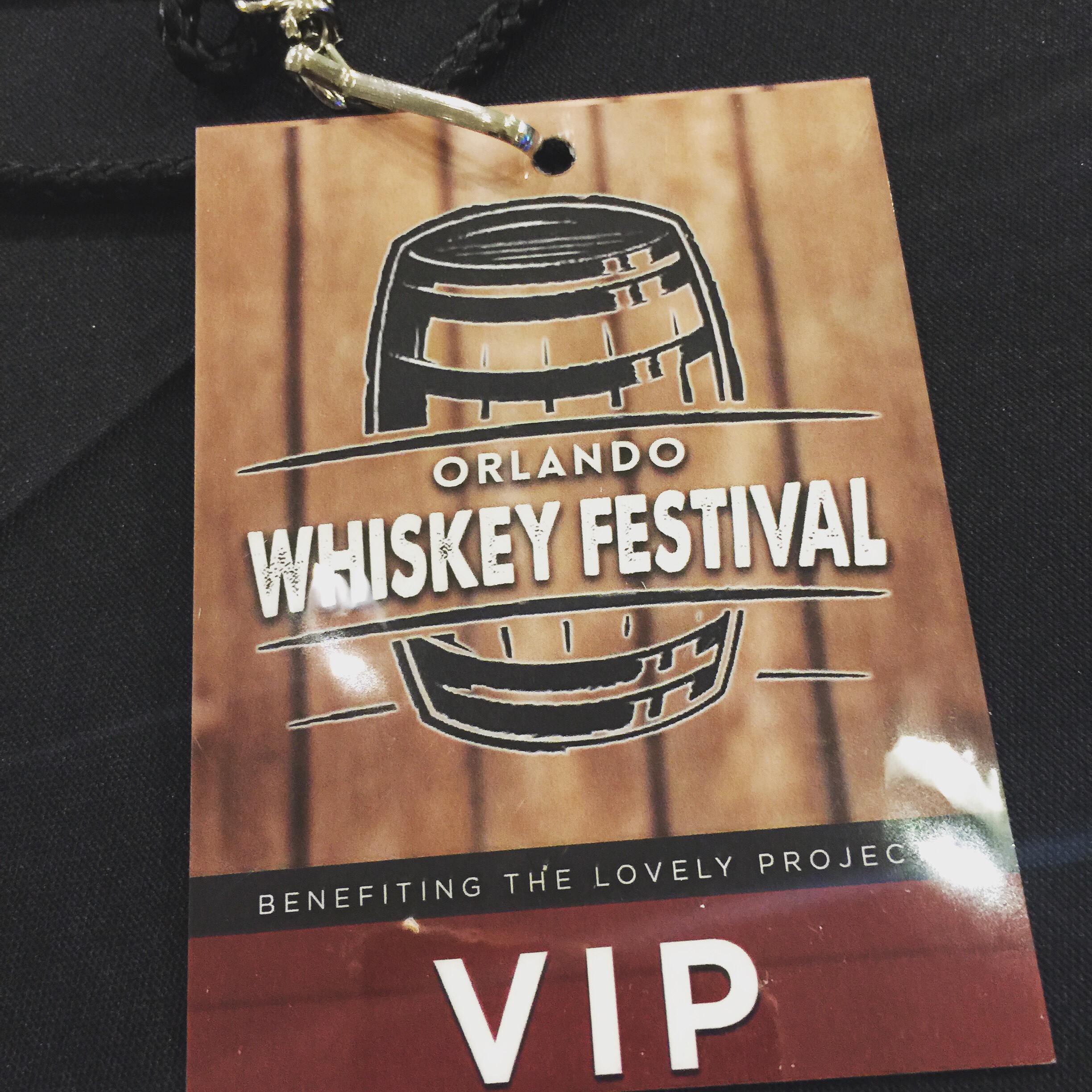The short answer is sadly, yes.
A lot of this discussion generally centers around whiskey being a distilled spirit. Which in a sealed bottle inherently cannot go bad so long as it is unopened. The key word being “unopened”. The way whiskey can go bad is by being exposed to too much air. Also known as oxidation. But, it should be said here in the beginning that a little air time can actually help the taste of some whiskeys for various palettes. Some may prefer the whiskey mellow for a period of time. I’m more interested in helping you save a favorite whiskey in the future from certain conditions that would make it undrinkable.
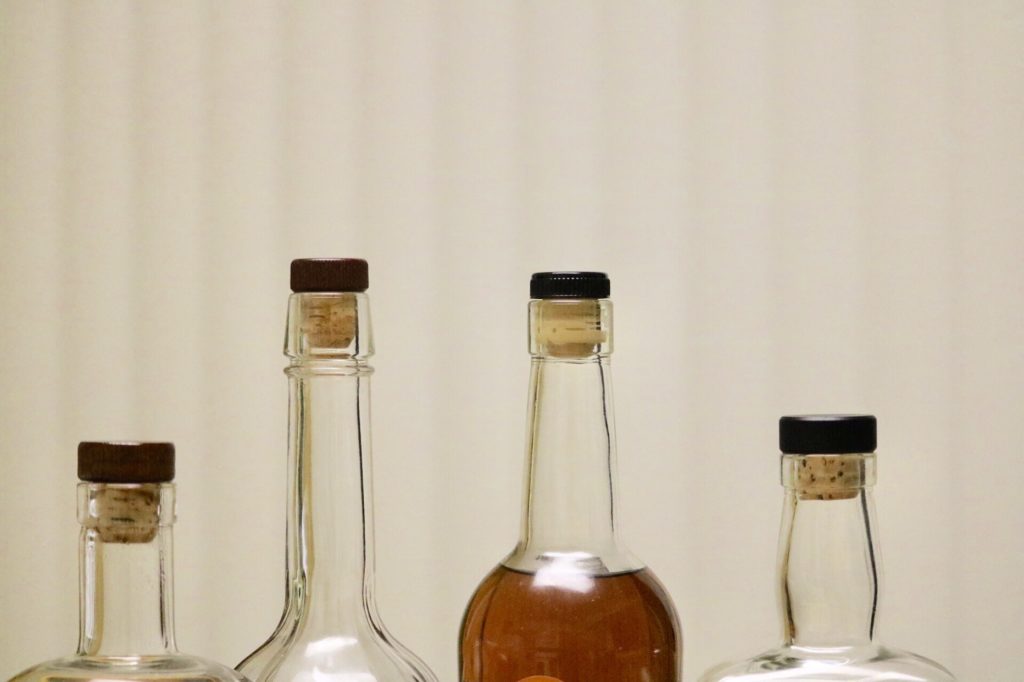
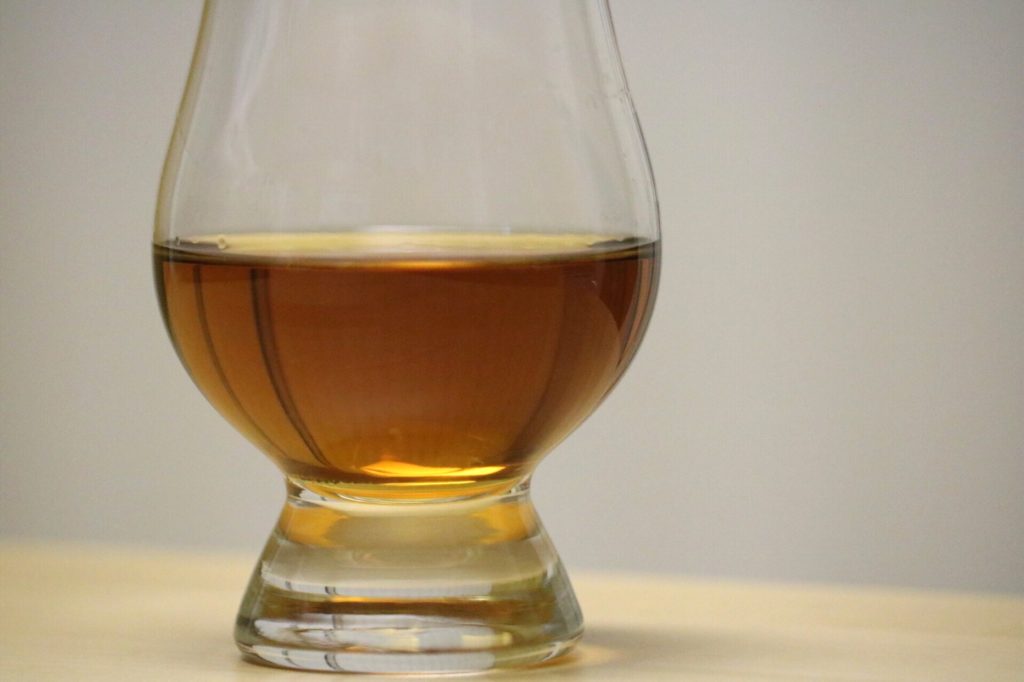
As you drink a whiskey the air to liquid ratio increases. The increase in oxygen in the bottle can over time have a negative effect on your whiskey. Especially on barrel proof or cask strength whiskeys with their higher alcohol content. Those can lose main tasting notes from high levels of oxidation. You have probably seen many social media posts referencing “killing open bottles”. That is because once the liquid level in a particular bottle has become so low. The larger amount of air within the bottle is altering the flavor of the whiskey at a much more substantial rate than when you first opened the bottle. There are a couple of things that you can do to help maintain the flavor of your favorite whiskeys throughout the lifetime of the spirit.
Many enthusiasts purchase smaller bottles with a firm seal such as those pictured to store certain favorite whiskey’s after their original bottle liquid level has dropped to half or less.
Transfering the whiskey into this smaller vessel helps maintain the flavor of the whiskey by continuing to limit the effects of oxidation. In more extreme cases the enthusiast may have several different volume containers to transfer until the end. But most don’t take it that far.
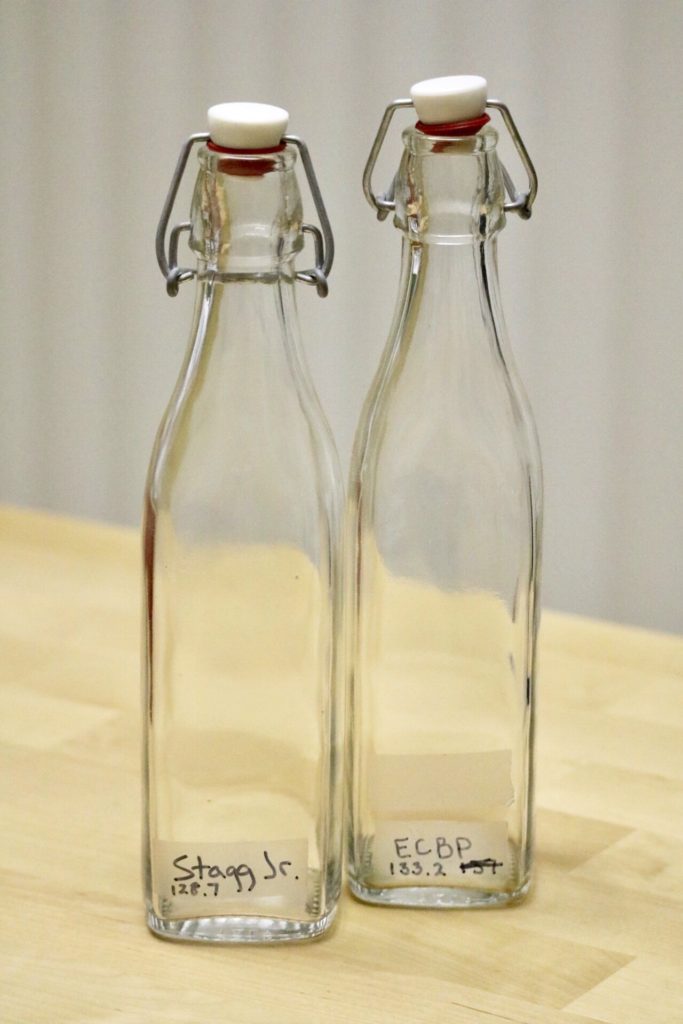
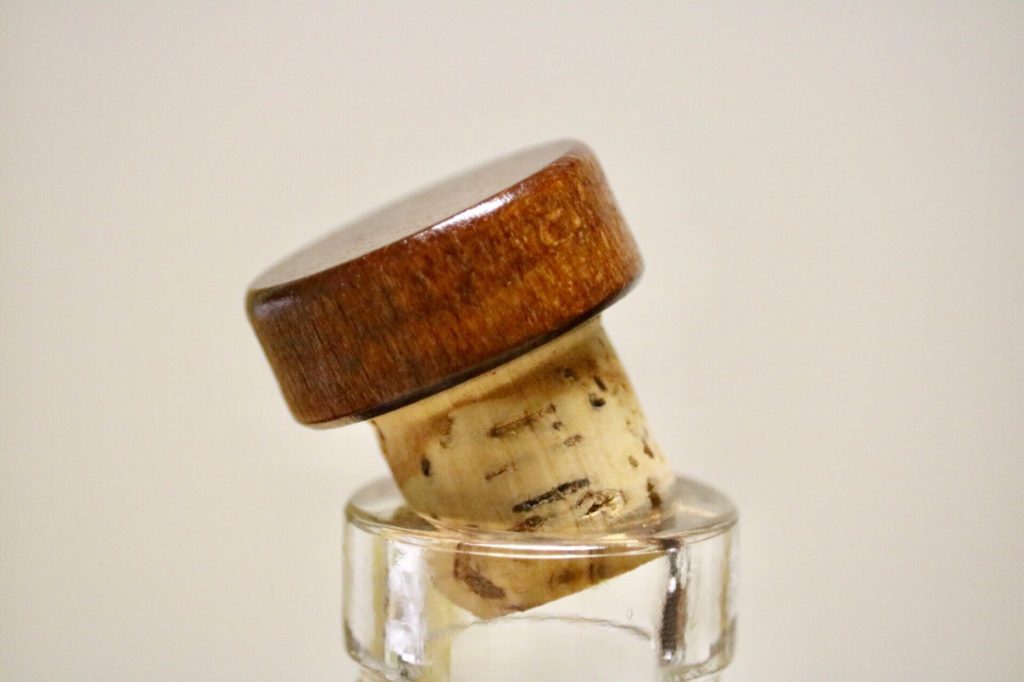
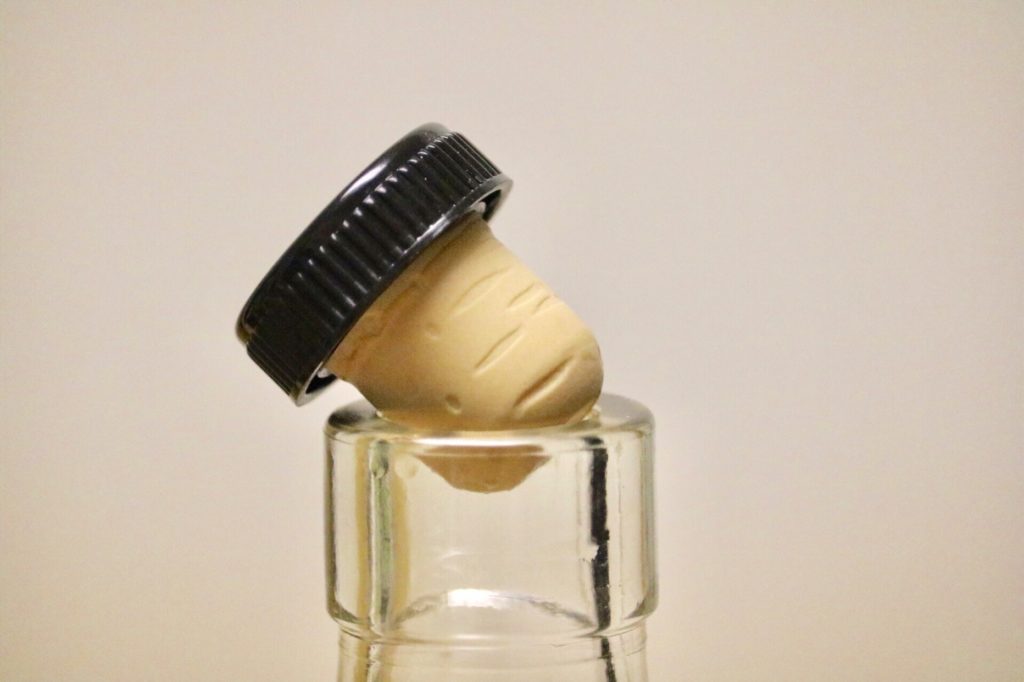
The second thing is a simple maintenance task you should do as your collection grows. In order to protect your investment you have to be sure to take care of the cork stoppers. Every so often you should flip your bottles for a short time to allow the whiskey to soak into the corks and expand to maintain a proper seal. The one exception would be if the bottle has a synthetic cork stopper as seen below. Then you can disregard this task since the cork will continue to maintain its volume without maintenance.
The corks I have had the most trouble with are older Elijah Craig stout bottles. I think that can be attributed to just their size. Those particular bottles had the largest cork stoppers of any whiskey bottle around. I was always a little worried about the seal on these bottles.
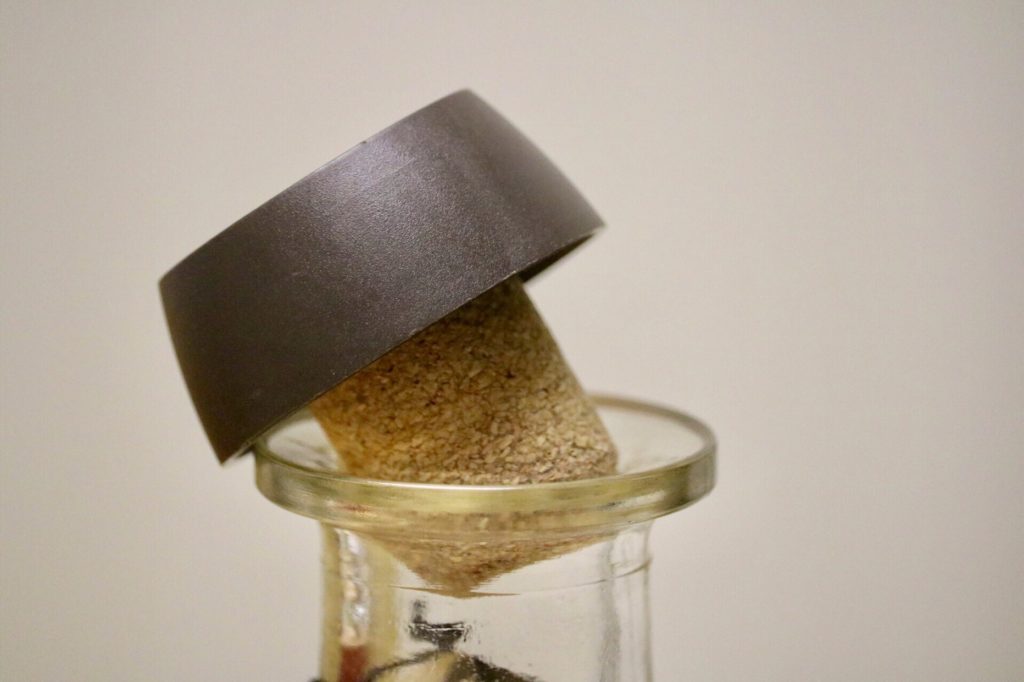
I recently had a ECBP bottle that the cork had dried out significantly, if not completely. The seal the cork was supposed to maintain from the outside air was gone. When turning the bottle over to soak the cork there was some spillage on the counter. I was worried the flavor would be significantly altered and unpleasant not knowing how long the seal had been compromised. I sampled some and noticed a less pleasant taste than I had remembered. So I actually transferred the whiskey into another empty bottle I had on hand. One that had a smaller cork able to maintain its seal easier requiring less maintenance.
A good analogy I like to mention of when talking about oxidation in whiskey. If you would think about cooking with seasonings such as salt for a moment. You can add as much of it as you want to any particular dish. But you cannot take any of that seasoning back out once you put it in. So left unchecked the meal could reach a point where it is just inedible. The same goes for allowing a great whiskey to become so oxidized it is literally undrinkable. This may be an extreme example to some but it is supposed to emphasize reaching a point of no return.
One more tip to know if you struggle opening bottles from time to time would be to tilt your bottles slightly as to soak the cork. This makes removing the cork much smoother and easily limiting the possibility of damage to the cork.
I hope this article and personal experience helps you in some way in protecting the rich flavor of your favorite whiskeys.
Like always, Drink well friends! 🥃👍
Have you had any negative experiences with oxidation? Leave a comment below! 👇

